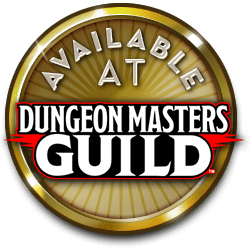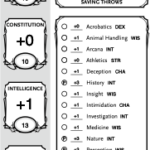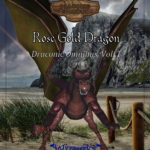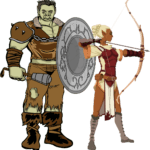Improvements in TTRPG Inclusion

When we launched Limitless Heroics, we said, ”Limitless Heroics is more than an RPG book. It’s a petition. Back this project, and you communicate to every game publisher on earth that disabled people exist and can easily be included in their games, that the customers want that representation, and that accessibility and representation are necessary core features for future products.” Some scoffed at that. Others called it virtue signaling. But we truly believe that these small actions have a ripple effect on the industry and the world.
Efforts toward inclusion have definitely improved over the years. Third party products like Ancestry & Culture and An Elf and an Orc Had a Little Baby offer suggestions for better representation and an alternative to the bioessentialism that has had such a prominent role in Dungeons & Dragons throughout its existence. Wizards of the Coast began making changes with Tasha’s Cauldron of Everything and took racial representation to the next level with the announcement of Journeys through the Radiant Citadel, and we applaud these efforts and see the leader of the industry providing a positive example for racial representation.
But what about disability representation?
The first well-known effort to better represent disabilities in role-playing games came from the viral Combat Wheelchair, followed closely by the inexplicably controversial ”ramps in dungeons” adventure in Candlekeep Mysteries, but note that the latter, while published by Wizards of the Coast, was only designed to be accessible by its author, Jennifer Kretchmer, not by direction from the company, which is obvious in that that’s the only adventure in the collection that includes any deliberate accessibility. (GURPS and the Hero System also include disabilities, but it does more harm than good.)
Besides a handful of very small games floating around itch.io, Accessible Games produces Psi-Punk and Survival of the Able, and Evil Hat’s Fate Accessibility Toolkit was the first deliberate representation publication by a second tier publisher, and it’s still considered the best of its kind in the industry, and while it’s brilliant, it’s also the best because it’s the only one of its kind until Limitless Heroics finishes production.
Other third party offerings have stepped into the D&D system with examples like Adventures in ADHD and our own Accessible Adventures of the Week, but those examples remain rare.
Proof that Tony Stark Has a Heart
But now Marvel has thrown down the Infinity Gauntlet of accessibility with the Marvel Multiverse RPG, including limited but deliberate disability representation. Disney/Marvel by no means leads the TTRPG space, but they’re the first company to enter it in recent years with the potential to challenge WotC on their home turf. While Marvel’s past TTRPG offerings haven’t challenged D&D for dominance, that’s not necessary even now to see more inclusion. (No, I have no illusions that Limitless Heroics influenced this decision.)
As more publishers, especially media companies whose reach extends beyond the TTRPG sphere, implement disability inclusion in their game systems and campaign worlds, the more it becomes expected. Imagine how odd a campaign world of all white characters would seem today thanks to the civil rights movements and the ongoing work of millions to demand racial representation. In the same way, games and other media without a broad range of orientations and gender expressions are becoming increasingly expected.
The more we see accurate and positive disability representation throughout different forms of media, the more it becomes a standard. I look forward to the day when the lack of disability representation becomes noticeable.













